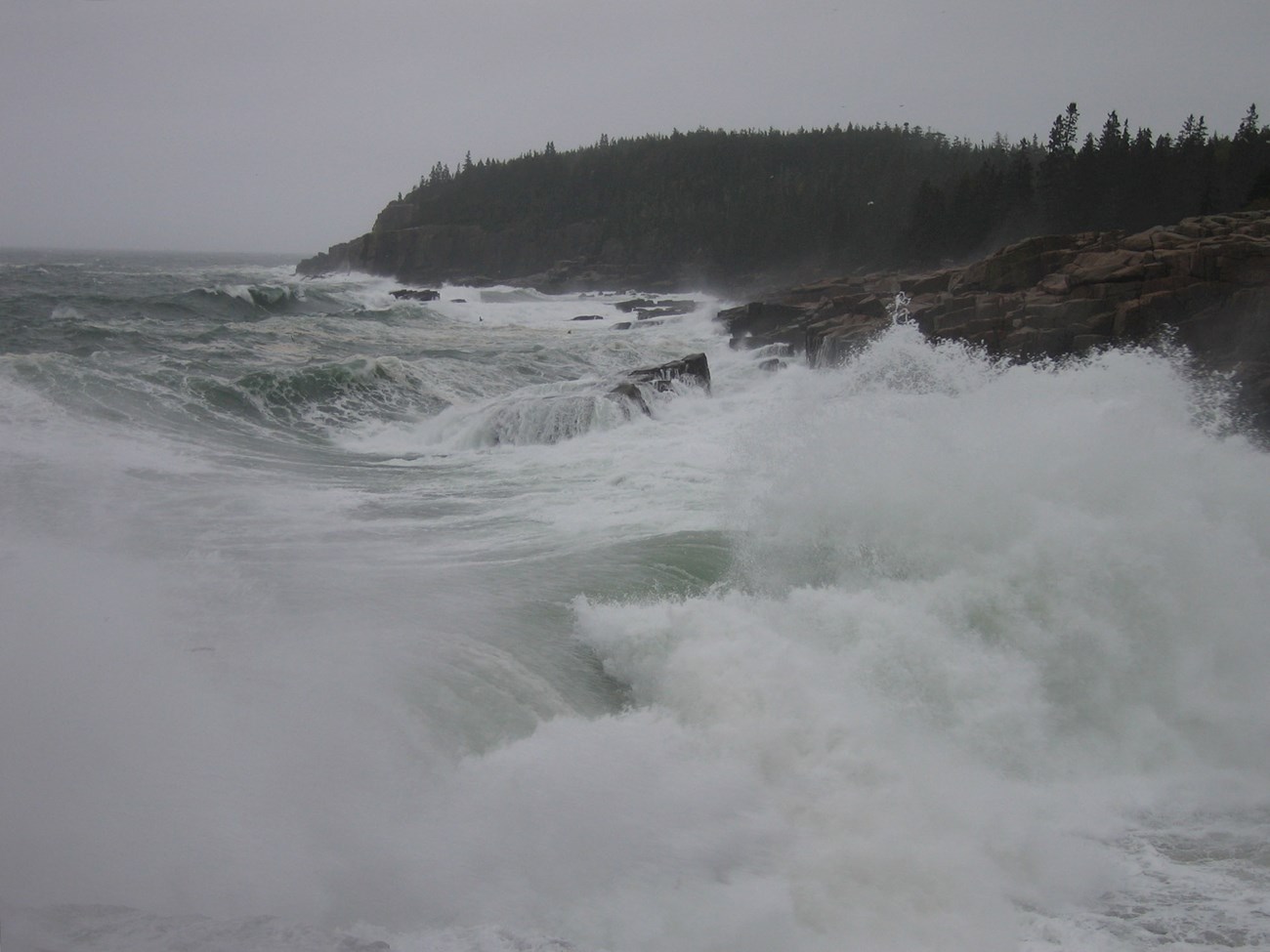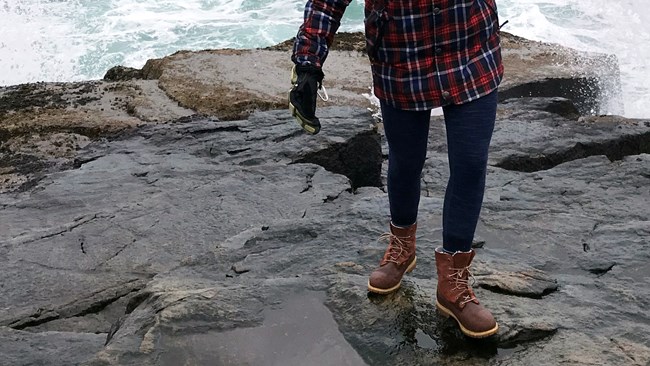Last updated: October 7, 2022
Article
Acadia Storm Safety

Keep Safe Distance From Crashing Waves
As thrilling and beautiful as heavy seas can be along the coasts of Acadia, please approach the experience with respect, and give it space. Water rescue operations are not uncommon in the park, and fatalities are not unprecedented.
As recently as September 2022, a Massachusetts woman was swept off the rocks at Thunder Hole and was rescued. In April 2018, an Ellsworth man fell 40 feet from cliffs past Sand Beach and landed in the water, where he was brought to safety in stable condition by a U.S. Coast Guard rescue swimmer.
Don't Turn Your Back On The Ocean
-
Keep a safe distance from the sea, and watch out for sneaker waves.
-
Granite rocks and seaweed are especially slippery. Shells are hard and jagged. Step carefully and slowly.
-
Cold water can shock your body and make it difficult to swim. Ocean temperatures average less than 60° F (15.6° C) in summer.
-
Water currents can tire you out and sweep you away. If caught in a rip tide, swim parallel to shore.
-
Underwater hazards can trap you and keep you from swimming back to shore.
-
Distance across water is greater than it looks. Water depth can suddenly change to above chin level.
-
Always follow surf advisories. Heed safety closures and posted signs.


Stay Informed
Watch for closure updates, safety advisories, and hazards information on the park website at Current Conditions, and on social media on Facebook, Instagram, and Twitter.
Loading weather forecast...

